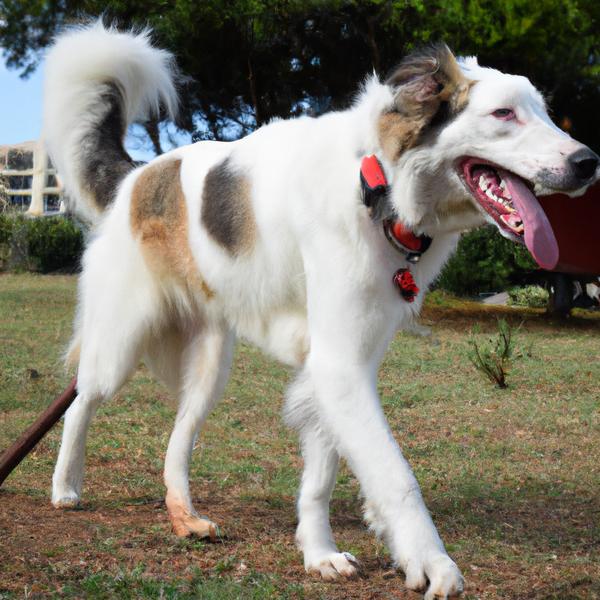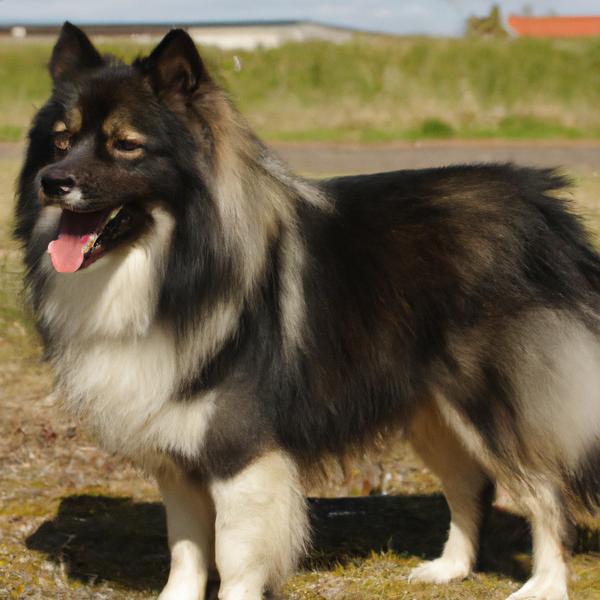Border Collie Pyrenees vs. Eskland: Breed Differences and Similarities
Hypoallergenic
Are Border Collie Pyreneess or Esklands hypoallergenic, or neither?
Unfortunately, neither Border Collie Pyrenees nor Eskland are hypoallergenic, which may not make them the best choice for dog lovers who suffer from pet allergies.
Temperament
What are the personalities of Border Collie Pyrenees and Eskland dogs?
Energetic
Protective
Alert
Intelligent
Confident
Responsive
Affectionate
Patient
Loyal
Gentle
Strong
Willed
Tenacious
Fearless
Playful
Independent
Energetic
Protective
Alert
Intelligent
Friendly
Responsive
Affectionate
Lively
Gentle
Shedding Level
Do Border Collie Pyreneess shed more than Esklands, or which breed sheds more, Border Collie Pyreneess or Esklands?
Border Collie Pyrenees or Eskland dogs are heavy shedders, they will lose a significant amount of hair each year. To decrease the amount of shedding, you can regularly brush your Border Collie Pyrenees or Eskland. This will remove loose hair and keep their coat growing in the same direction.
Watchdog Ability
Which dog breed makes a better watchdog, the Border Collie Pyrenees or Eskland?
Border Collie Pyreneess are decent watchdogs - they'll alert their owner if something seems amiss.
Esklands aren't great guard dogs; they tend to just watch without taking action.
Ancestry
What are the origins of Border Collie Pyrenees and Eskland breeds?
Border Collie, Great Pyrenees
American Eskimo and Shetland Sheepdog
Breed recognition
Which kennel clubs recognize/register Border Collie Pyrenees and Eskland?
DRA = Dog Registry of America, Inc.
IDCR = International Designer Canine Registry®
ACHC = American Canine Hybrid Club
DDKC = Designer Dogs Kennel Club
DRA = Dog Registry of America, Inc.
IDCR = International Designer Canine Registry®
Date of Birth
When were Border Collie Pyrenees and Eskland breeds first developed?
Unknown
Litter Size
What is the usual litter size for Border Collie Pyrenees and Eskland?
A Border Collie Pyrenees can have a litter of 6-9 puppies on average. However, it's worth noting that the size of the litters can vary greatly. Factors that can influence litter size include the health of the mother, breeding history, and genetics.
An Eskland can have a litter of 4-6 puppies on average. However, it's worth noting that the size of the litters can vary greatly. Factors that can influence litter size include the health of the mother, breeding history, and genetics.
Adaptability
Border Collie Pyreneess are highly adaptable and versatile, making them excellent companions for families and individuals of all lifestyles.
Esklands are known for their adaptability and can adjust well to different environments and lifestyle changes.
Health Issues
Between Border Collie Pyrenees and Eskland, which breed is more prone to health problems?
Border Collie Pyreneess typically have low vet costs due to their good health, but it's important to monitor their health and seek vet care when necessary.
While the Eskland breed is generally healthy, occasional vet check-ups are still necessary to address any health concerns.
Major Concerns
What are the major health concerns for Border Collie Pyrenees and Eskland breeds?
Deafness
Hip Dysplasia
Collie Eye Anomaly
Hip Dysplasia
Dermatomyositis
Von Willebrand's Disease
Pancreatitis
Minor Concerns
What minor health issues should be kept in mind when owning Border Collie Pyrenees and Eskland?
Elbow Dysplasia
Cataracts
Cervical Vertebral Instability
Cataracts
Retinal Dysplasia
Hypothyroidism
Atopy Dermatitis
Occasional Tests
What occasional tests are recommended for Border Collie Pyrenees and Eskland breeds?
Eye
Hip
Spine
X-Rays
Eye Examination
Eye Examination
Physical Examination
Radiographs
Energy
How do the energy levels of Border Collie Pyreneess and Esklands compare?
Border Collie Pyreneess are a good choice for a low-key lifestyle due to their low energy levels.
Esklands' high energy levels make them unsuitable for a low-key dog, choose accordingly.
Social Needs
Border Collie Pyrenees vs Eskland social needs comparison
Border Collie Pyrenees and Eskland have very high social needs. These needs include regular mental and physical stimulation, a job or purpose, and companionship. They thrive in environments where they have a lot of interaction with humans and other dogs.
Exercise Needed
Border Collie Pyrenees vs Eskland exercise need comparison.
The Border Collie Pyrenees and Eskland breeds require a moderate amount of physical activity to maintain a healthy lifestyle. They are ideal for people who have a moderate amount of time to devote to their pets and enjoy regular physical activity themselves. They also make great family pets as they have the energy to keep up with children and the temperament to be great companions.
Sleeping Need
Which of the two sleeps the most/least: Border Collie Pyrenees or Eskland?
Border Collie Pyreneess are active and require sufficient sleep to stay healthy.
Esklands sleep less than other breeds but still need adequate sleep for good health.
Tendency to Bark
Do Border Collie Pyreneess or Esklands bark more/less frequently?
The Border Collie Pyrenees is a vocal breed that frequently barks and howls, and may not be suitable for those seeking a quiet companion.
Esklands bark moderately when necessary and may also bark due to certain triggers like fear, alarm, boredom, greeting, separation anxiety and compulsive barking.
Mouthiness
Mouthiness Comparison: Border Collie Pyrenees vs Eskland?
Roaming urge
Border Collie Pyrenees vs Labrador: Running away tendency?
Prey Drive
Border Collie Pyrenees or Eskland - which breed has a higher level of prey drive?
Past times
What are some enjoyable activities and ways to keep Border Collie Pyrenees and Eskland entertained?
Hike, Fetch, Walking, Running, Dog park, Jogging, Hiking, Relaxing, Swimming, Dog Parks, Walk, Run, Training, Hide & Seek, Tug-of-war, Chasing, Playing, Service dog, Therapy dog, Walks, Cuddling, Rope tugging, "Keep away"/Tag, Snugglin, Cuddles, Car rides, Napping, Catch treats, Ball
Fetch, Hike, Walk, Playing, Walking, Loves snow, Needy, Farm work, Run, Road trip, Swim, Catch treats, Play keep away, Wrestling, Tug-of-war, Hide & Seek, Dance, Shake, Puzzle Toys, Tag, Trampoline
Tolerance of being left alone
Grooming
Which breed is easier to maintain in terms of grooming, Border Collie Pyreneess or Esklands?
The Border Collie Pyrenees requires an average amount of grooming compared to other breeds.
Esklands require significant grooming, including regular trims and professional grooming assistance to maintain their coat. They may also require frequent bathing to keep their coat and skin healthy.
Intelligence
Comparing Intelligence: Border Collie Pyreneess vs Esklands
Border Collie Pyreneess are average in obedience intelligence but have a high IQ and may cause trouble if left unsupervised.
Eskland is a very intelligent and trainable breed.
Sensitivity Level
How do Border Collie Pyrenees and Eskland compare in sensitivity?
These dog breeds are particularly attuned to its environment and the emotions of those around it. Border Collie Pyrenees and Eskland can be easily overwhelmed by loud noises, new environments, unfamiliar people, or animals. This dog breed is best suited for individuals or families who are patient, gentle, and understanding of its sensitive nature. It may also benefit from a calm and stable home environment, with a consistent routine and plenty of positive reinforcement training.
Affection Dependance
Which is the more affectionate dog breed: Border Collie Pyrenees vs Eskland?
Apartment Friendly
Which breed is more apartment-friendly: Border Collie Pyrenees or Eskland?
Border Collie Pyreneess can do well in apartments with enough exercise and time outside, but a small yard would be ideal.
The Eskland is a great apartment dog, thriving with sufficient exercise and time outside as part of their daily routine.
Child Friendly
Do Border Collie Pyreneess or Esklands have a friendlier temperament towards children?
Border Collie Pyreneess make excellent family pets for kids due to their gentle, protective nature and calm temperament.
Esklands are good with kids if socialized and trained from a young age.
Senior-friendly
Which dog is more suitable as a pet for the elderly - Border Collie Pyrenees or Eskland?
Cat Friendly
Do Border Collie Pyrenees or Eskland breeds have a better compatibility with cats?
Border Collie Pyreneess and Esklands are one of the best dogs for cats. They accept cats readily as part of the family. However, this dog breed should be trained to not chase after the kitty early on
Dog Friendly
Which breed is more sociable with other dogs: Border Collie Pyrenees or Eskland?
Border Collie Pyreneess are average in their friendliness towards other dogs, and socialization can help.
Esklands are friendly and active companions, and can be good family pets, though their friendliness towards other dogs may vary.
Pet friendly
How do Border Collie Pyrenees or Eskland dogs interact with other pets?
Stranger Friendly
Which breed is more friendly with strangers: Border Collie Pyrenees or Eskland?
Border Collie Pyreneess are averagely friendly around strangers but benefit from early socialisation.
Esklands are quick to announce strangers and can be standoffish or suspicious.
Playfulness
Which breed is more playful between Border Collie Pyrenees and Eskland?
Border Collie Pyrenees and Eskland are playful dogs. So, no matter how busy the day may get, the best thing you can do for Border Collie Pyrenees and Eskland is to make time each day to play. It can be as little as 15-20 minutes, and it will mean the world to them.
Trainability
How do the trainability levels of Border Collie Pyreneess and Esklands compare?
Border Collie Pyrenees and Eskland dogs are known for their ease of training and ability to learn quickly, making them a popular choice for pet owners and trainers alike.
Compare Border Collie Pyrenees with other breeds
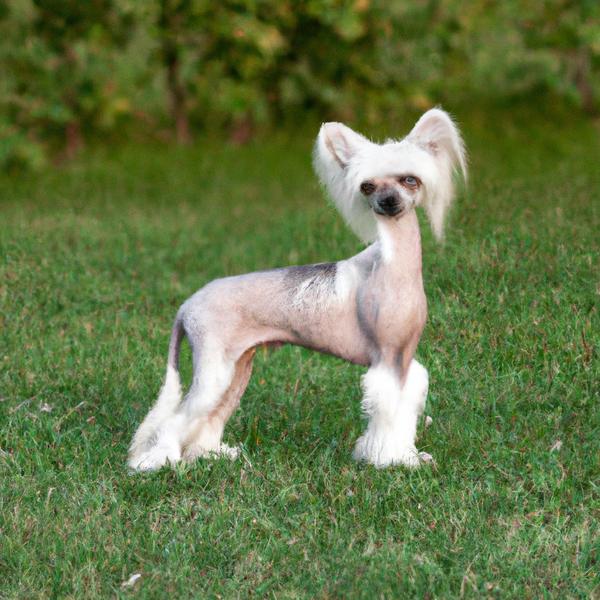
Chinese Crestese
Border Collie Pyrenees vs Chinese Crestese

Doxle
Border Collie Pyrenees vs Doxle
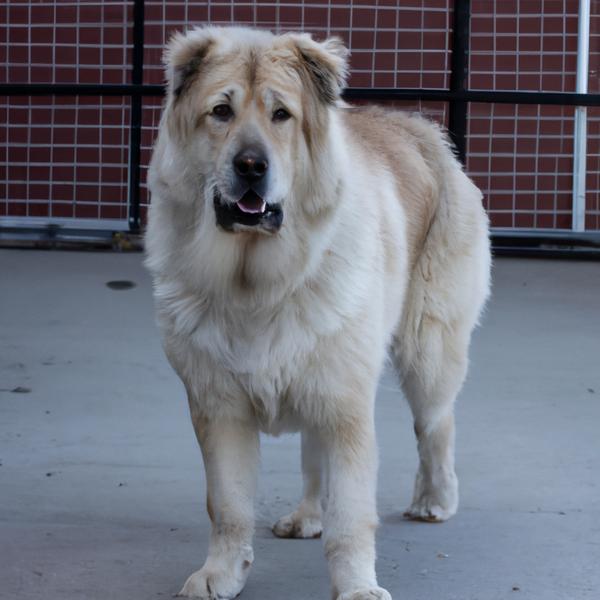
Wheaten Eskimo
Border Collie Pyrenees vs Wheaten Eskimo
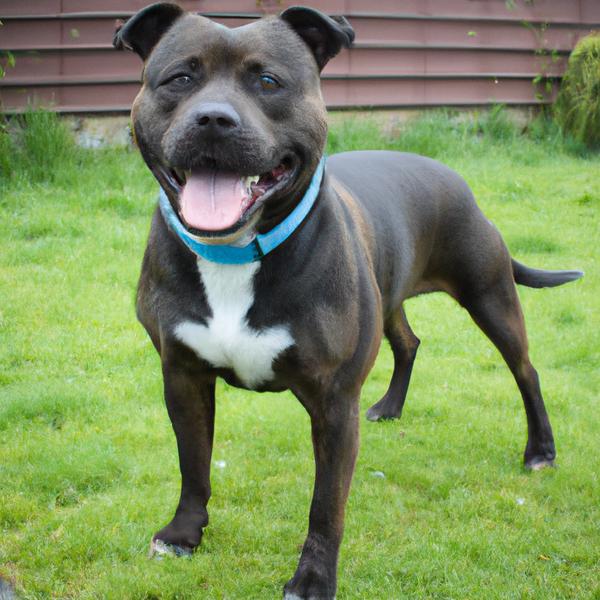
Staffy Bull Pit
Border Collie Pyrenees vs Staffy Bull Pit
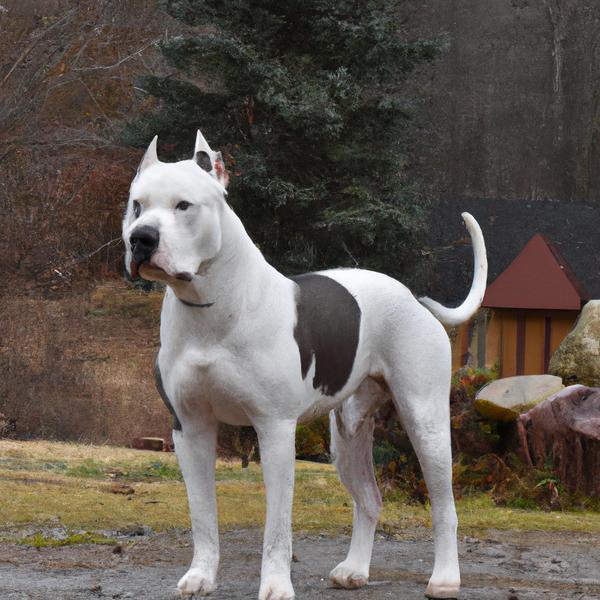
Alaskan Pit Bull
Border Collie Pyrenees vs Alaskan Pit Bull

Miniature Bulldog
Border Collie Pyrenees vs Miniature Bulldog
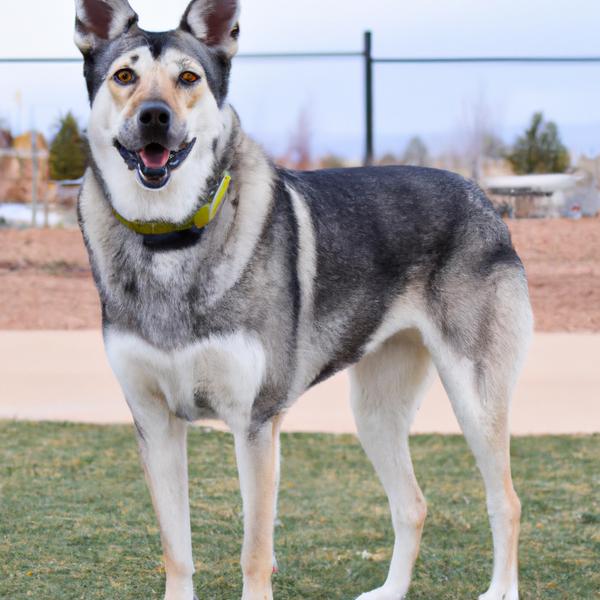
Chinook
Border Collie Pyrenees vs Chinook

Cockalier
Border Collie Pyrenees vs Cockalier

Silkytie
Border Collie Pyrenees vs Silkytie
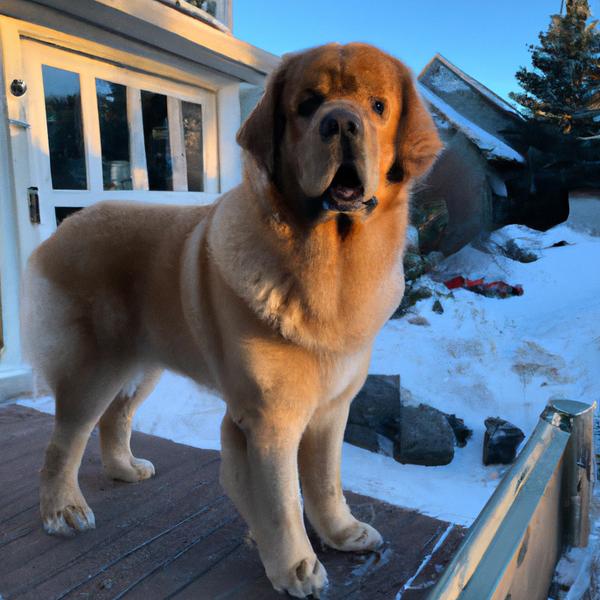
Golden Newfie
Border Collie Pyrenees vs Golden Newfie

Mini Yorkshire Aussie
Border Collie Pyrenees vs Mini Yorkshire Aussie
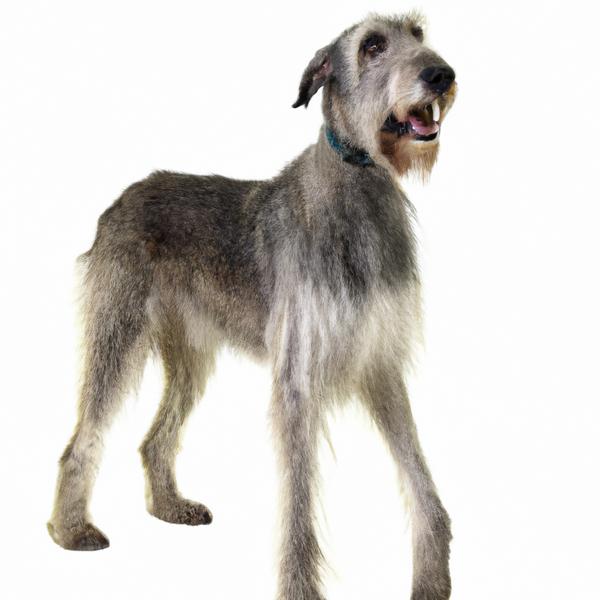
Scottish Deerhound
Border Collie Pyrenees vs Scottish Deerhound
